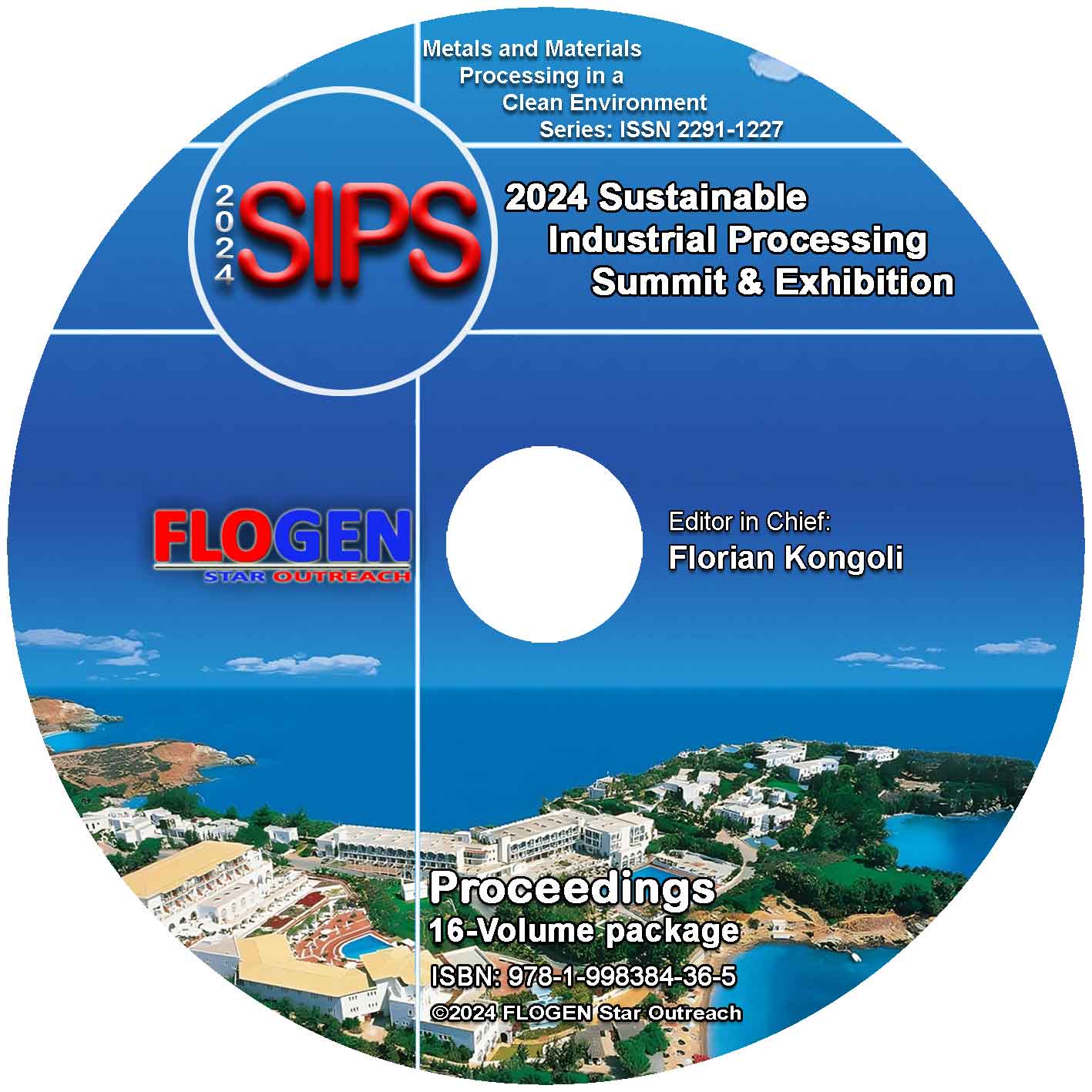2024 - Sustainable Industrial Processing Summit
SIPS 2024 Volume 13. Stelter Intl. Symp / Non-ferrous Smelting & Hydro/Electrochemical Processing
| Editors: | F. Kongoli, J. Antrekowitsch, A. Charitos, C. Oosterhof, Z. Wang |
| Publisher: | Flogen Star OUTREACH |
| Publication Year: | 2024 |
| Pages: | 192 pages |
| ISBN: | 978-1-998384-28-0 (CD) |
| ISSN: | 2291-1227 (Metals and Materials Processing in a Clean Environment Series) |

CD shopping page
FLUORINE-TOLERANT DOMESTICATION OF ACIDITHIOBACILLUS FERROOXIDANS AND ENHANCED BIOLEACHING OF VANADIUM-BEARING SHALES
Yue Wang1; zhenlei Cai1; Yimin Zhang1; Qiushi Zheng1;1WUHAN UNIVERSITY OF SCIENCE AND TECHNOLOGY, Wuhan, China;
Type of Paper: Regular
Id Paper: 93
Topic: 6
Abstract:
Black shale is a unique vanadium-bearing resource in China. Therefore, extraction of vanadium from black shale for high value applications becomes important [1]. Biological vanadium extraction from black shale is an emerging alternative to conventional metal extraction. During bioleaching, rare metals in minerals are converted to a soluble or extractable state by the action of bacteria [2,3,4]. Compared with traditional recycling process, the bioleaching is greener, more efficient and requires lower cost as well as energy [5]. Acidithiobacillus ferrooxidans (A. ferrooxidans) is one of the most important autotrophic bacterium involved in bioleaching. It is also a bioleaching microorganism that was well studied and was of most economic benefits in biological metallurgy.
However, the biotechnology of vanadium extraction still faces problems such as irrational regulation of influencing factors, low leaching rate, and poor fluorine tolerance of bacterial strains. To address the above problems, this paper domesticates a fluoride-tolerant bacterium, utilizes the role of fluoride in chemical leaching that can destroy the mica crystal lattice, and uses fluoride as a leaching aid to improve vanadium bioleaching in a new process.
In this paper, the fluoride tolerance domestication of the leaching strain Acidithiobacillus ferrooxidans and its mechanism and the parameters of the factors affecting the bioleaching process of vanadium-bearing shale was investigated. On the one hand, fluoride-tolerant strains were obtained by successive transient domestication, and the mechanism of fluoride tolerance in mineral-leaching strains was investigated from the genomic point of view; On the other hand, the influence of various factors on the bioleaching efficiency of vanadium-bearing shale was investigated, and the optimal process parameters for vanadium bioleaching were determined.
A strain tolerant to 0.05 mol/L F- was obtained by eight consecutive transplants, and the enriched culture was used for vanadium biorefining, which showed good leaching performance on vanadium shale, with an increase of about 15% in leaching rate compared with chemical leaching.